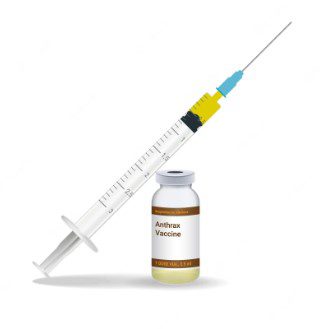

Dogs with a vaccine allergy may display a variety of symptoms, such as swelling, itching, hives, coughing, sneezing, vomiting, runny nose, and difficulty breathing. In some cases, the allergy can cause anaphylactic shock, which can be life-threatening.
Dogs can develop a vaccine allergy due to an immune system overreaction to an ingredient found in the vaccine. Common vaccine ingredients that can cause allergies in dogs include gelatin, yeast, egg protein, formaldehyde, and gentamycin. Vaccination in susceptible dogs can lead to an allergic reaction due to the body mistaking the vaccine as an outside invader, and producing an excess of antibodies to fight it.
The diagnosis of a vaccine allergy in dogs begins with an examination and medical history of the animal. The veterinarian may order blood tests and skin tests to rule out other causes of the symptoms and confirm an allergy to a vaccine. If the diagnosis is confirmed, the veterinarian may recommend treatments like antihistamines, steroids, and allergy shots, as well as avoiding future vaccines.
Dog vaccine allergies can be very serious and can possibly be life-threatening. If left untreated, the mortality rate from anaphylactic shock is roughly 10 to 20%. Therefore, it is important to seek medical attention as soon as possible if a dog is experiencing any of the symptoms associated with this allergy.
Dogs with a vaccine allergy should be treated with an anti-inflammatory medication, such as corticosteroids, to reduce the symptoms. They may also be prescribed an antihistamine to lessen itching and inflammation. In more serious cases, epinephrine or an epinephrine auto-injector may be given to reduce the severity of an anaphylactic reaction. In addition, a change in diet may be recommended to avoid foods that trigger the allergy.
The best prevention method for vaccine allergies in dogs is to keep up with regular vaccine updates for your pet, as over-vaccination can cause an allergic reaction. Additionally, scheduling vaccinations well in advance of giving the shot can give the body time to develop a tolerance to the vaccine. It is also important to speak to your veterinarian about administering an antihistamine prior to the vaccine, to help prevent an allergic reaction. Finally, when possible, use an alternate vaccine type that may not cause the same reaction.
Dog allergies are not contagious and cannot directly affect humans. However, if a person is allergic to dogs, the same symptoms they experience when exposed to other allergens may apply. It is possible for a person to suffer from a reaction to a dog’s saliva, hair, or dander, though this is relatively rare.
There are some home remedies that may be useful in helping to manage the symptoms of a vaccine allergy in dogs. These include adding fatty acids to the diet, avoiding giving the dog vaccines that are no longer necessary, and using anti-itch shampoos. You should always consult with a veterinarian before trying any home remedies for your pet.
While there are potential home remedies that may be useful in helping to manage the symptoms of a vaccine allergy in dogs, it’s best to first consult with your veterinarian for the best course of action. Remember, these dog allergy remedies are not a guaranteed solution and may not work for all pets.
There are some breeds of dogs that have been identified as being more vulnerable to vaccine allergies than others, such as Alaskan malamutes, Old English sheepdogs, and Basset hounds. Other breeds, such as American Eskimo dogs, Weimaraners, Labrador Retrievers, and Golden Retrievers have also been known to be susceptible to vaccine allergies. Symptoms of this allergy typically include vomiting, diarrhea, itching, and redness around the injection site. If a dog’s immune system is weakened by stress or illness, it can increase the chances of them developing a vaccine allergy.
Have you ever seen signs of a vaccine allergy in your dog? How did you react and how did you manage the process? Vaccine allergies can be frightening, so it’s important to stay calm and act quickly to find the best treatment for your pup. At the end of the day, your pup’s health and comfort should be paramount. We hope you and your pup are doing well and wish you all the best from here on out.